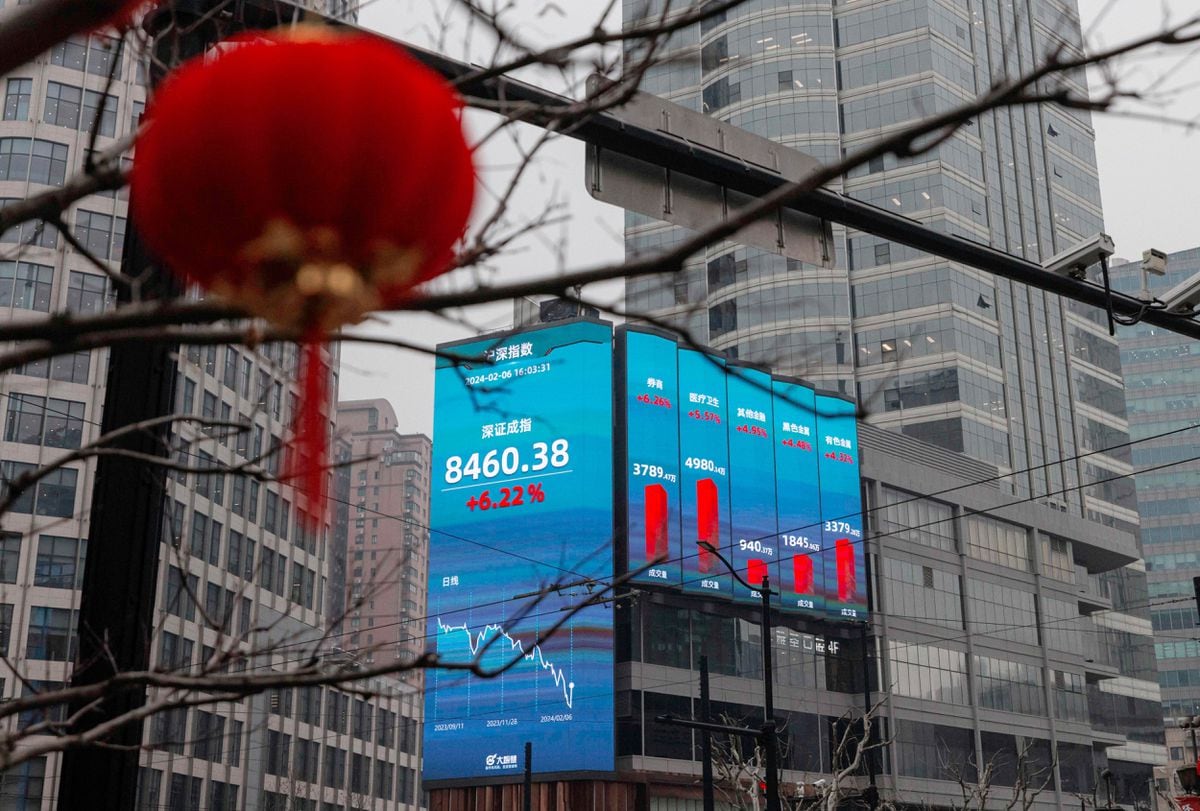American companies still have no one to cough them up.
Only four of the 20 largest listed companies in the world by market value at the end of 2022 are not based in the North American giant: the Saudi oil company Aramco (second), the Chinese telecom and technology firm Tencent (eleventh), the Taiwanese semiconductor manufacturer TSMC (fourteenth) and the French luxury conglomerate LVMH (fifteenth and only European representative in the world business Olympus).
In times of heated debate about the extent to which China will be able to challenge the US economic hegemony, Washington manages to place no less than 16 representatives in that select classification, one more than a year earlier.
If the focus is broadened, the figures are equally staggering.
23 of the 30 most valuable firms in the world are American, according to Bloomberg data.
So are 60 of the 100. In that hundred, the variety of nationalities grows: China places 11 names, a good harvest but almost six times less than that of the country it wants to challenge for the global scepter;
France and the United Kingdom have five each;
little Switzerland, three;
India, the Netherlands and Hong Kong, two;
and Germany, Japan, South Korea, Taiwan, Australia, Canada, Denmark, Ireland, Saudi Arabia, United Arab Emirates, a.
The technological ones resist
As in previous years, US dominance rests to a large extent on the firing power of its technology.
Everything, despite the particularly adverse environment that this sector is experiencing, after the tremendous stock market crash suffered in 2022.
Apple loses more than a quarter of its value on the stock market, but that does not prevent it from continuing to lead —easily— the ranking at a considerable distance from the oil giant Aramco, which is experiencing a particularly sweet moment: with Russia out of the game, Saudi crude it is more important than ever in the puzzle that the global energy market has become since the invasion of Ukraine.
Next —again, despite its ill-fated exercise on the trading floor— three other technology companies from the west coast of the United States: Microsoft, Alphabet and Amazon.
Although especially strong in the case of the technological colossi, the shock in the stock markets is widespread.
2022 has been the worst year for equities since 2008, that of the financial crisis, and that has had an impact on practically all the big names in the classification.
In total, the 100 largest listed companies in the world lost 7.2 trillion dollars (6.7 trillion euros) in just 52 weeks.
The reverse was energy and industry, by far the most resistant sectors.
Also one of the few that added new names to the list.
Despite being at the beginning of its decline, given the necessary decarbonization and the rise of alternative fuels, such as green hydrogen, the oil sector manages to place three very recognizable names —the aforementioned Aramco and the American companies Exxon Mobbil and Chevron— among the 20 largest companies on the planet by market value.
The Saudi company's IPO at the end of 2019, just a few months before the pandemic, was the last major debut on world stock markets: today there is no unlisted candidate whose IPO could place it in such prominent positions.
"The sharp rise in interest rates, inflation, the war in Ukraine and the problems in the supply chain and the rise in energy prices have left their mark on the global stock markets," explained Stefan Rösch in a recent analysis. -Rütsche, from the auditor and consultant EY.
“Tech companies, which had gained a lot of value during the pandemic, are now suffering in a much more challenging economic environment.”
Europe, the other side of the coin
The West contains a double reality as far as corporate power is concerned: a US that does not show signs of weakness and a Europe that has lost the corporate luster it once had.
The decline has been rapid: if before the financial crisis almost half (46) of the 100 largest companies in the world were located in the Old Continent —United Kingdom included—, today there are only fifteen, none of them Spanish.
In other words: the European weight in the classification is four times less than the American.
The thriving Asia, led by China, has 19, four more than Europe.
India, which in the coming months will become the most populous nation on Earth and which already has several tycoons among the richest in the world, only adds two: the multi-sector giant Reliance Industries and the Tata group, another colossus with tentacles in the automotive sector, information technology, energy, steel or chemicals.
Unlike their US and Asian peers, who mix new-fangled names with traditional firms, the European companies that rank among the world's largest have a common denominator: tradition.
Some of the most iconic brands of the LVMH group have more than a century of history.
The Swiss Nestlé, twenty-third and second in Europe, was founded in 1866. The origins of the Danish pharmaceutical company Novo Nordisk, third in contention, go back to the Roaring Twenties.
And those of the also pharmaceutical Roche are at the turn of the 19th century to the 20th.
“Many European companies are in the midst of a deep transformation process in their business models, and only a few are young,” notes Rösch-Rütsche, of the professional services firm EY.
Photography, he recounts, is radically different on the other side of the Atlantic: there, despite having a good representation of classic firms, the most powerful have emerged in recent decades.
"Their financial situation is significantly better, not only for young companies: while in Europe the capital markets are highly fragmented, in the US there is a wider range of cheap and flexible sources of financing."
Subscribe to continue reading
Read without limits
Keep reading
I'm already a subscriber









